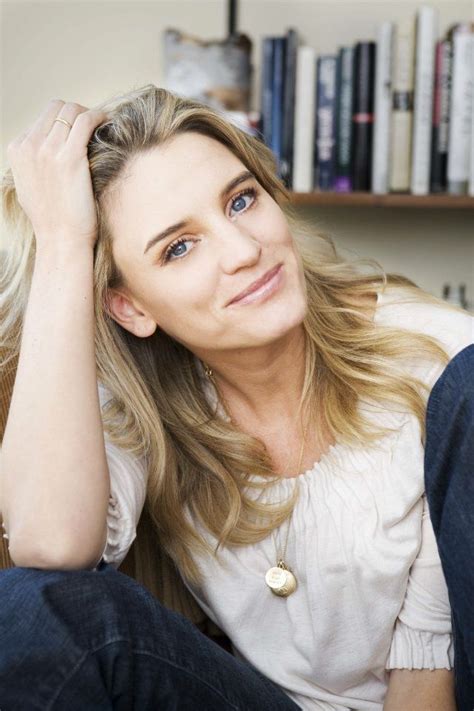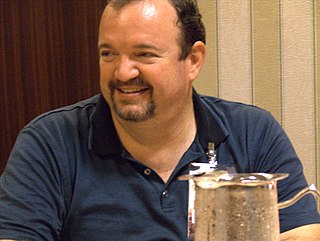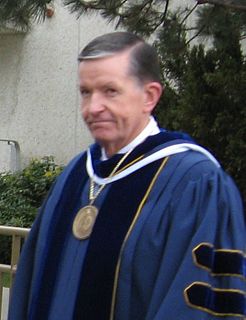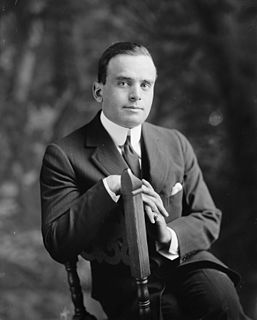A Quote by Jhumpa Lahiri
Gogol remembers having to do the same thing when he was younger, when his grandparents died...He remembers, back then, being bored by it, annoyed at having to observe a ritual no one else he knew followed, in honor of people he had seen only a few times in his life...Now, sitting together at the kitchen table at six-thirty every evening, his father's chair empty, this meatless meal is the only thing that seems to make sense.
Quote Topics
Annoyed
Back
Being
Being Bored
Bored
Chair
Died
Else
Empty
Evening
Every
Father
Few
Followed
Gogol
Grandparents
Had
Having
His
Honor
Kitchen
Kitchen Table
Knew
Life
Make
Make Sense
Meal
Now
Observe
Only
People
Remembers
Ritual
Same
Same Thing
Seems
Seen
Sense
Sitting
Sitting Together
Six
Table
The Only Thing
Then
Thing
Thirty
Times
Together
Younger
Related Quotes
This past Thanksgiving, my father was at the farm, and I had all 11 dogs in the house with a father who never allowed dogs in the house. And he got up to leave the table and came back and Solomon was in his chair. And he says, "This dog is in my chair." And I said, "It's the other way around, you're sitting in his chair."
Happy is it, indeed, for me that my heart is capable of feeling the same simple and innocent pleasure as the peasant whose table is covered with food of his own rearing, and who not only enjoys his meal, but remembers with delight the happy days and sunny mornings when he planted it, the soft evenings when he watered it, and the pleasure he experienced in watching its daily growth.
'Wayne of Gotham' is very much a father-and-son exploration. We've always seen Thomas Wayne through the years as this figure carved in marble; this perfect man. The only thing we really know about is that he died in that alley outside of a theater. But every son has to confront the reality of his father at some point in his life.
As the patriots of seventy-six did to the support of the Declaration of Independence, so to the support of the Constitution and Laws, let every American pledge his life, his property, and his sacred honor;-let every man remember that to violate the law, is to trample on the blood of his father, and to tear the character of his own, and his children's liberty.
When someone seeks," said Siddhartha, "then it easily happens that his eyes see only the thing that he seeks, and he is able to find nothing, to take in nothing because he always thinks only about the thing he is seeking, because he has one goal, because he is obsessed with his goal. Seeking means: having a goal. But finding means: being free, being open, having no goal.
Jesus Christ was the only one capable of performing the magnificent Atonement because He was the only perfect man and the Only Begotten Son of God the Father. He received His commission for this essential work from His Father before the world was established. His perfect mortal life devoid of sin, the shedding of His blood, His suffering in the garden and upon the cross, His voluntary death, and the Resurrection of His body from the tomb made possible a full Atonement for people of every generation and time.
In that most burdensome moment of all human history, with blood appearing at every pore and an anguished cry upon His lips, Christ sought Him whom He had always sought—His Father. “Abba,” He cried, “Papa,” or from the lips of a younger child, “Daddy.” This is such a personal moment it almost seems a sacrilege to cite it. A Son in unrelieved pain, a Father His only true source of strength, both of them staying the course, making it through the night—together.
For one thing is needful: that a human being should attain satisfaction with himself, whether it be by means of this or that poetry or art; only then is a human being at all tolerable to behold. Whoever is dissatisfied with himself is constantly ready for revenge, and we others will be his victims, if only by having to endure his ugly sight.
His face set in grim determination, Richard slogged ahead, his fingers reaching up to touch the tooth under his shirt. Loneliness, deeper than he had never known, sagged his shoulders. All his friends were lost to him. He knew now that his life was not his own. It belonged to his duty, to his task. He was the Seeker. Nothing more. Nothing less. Not his own man, but a pawn to be used by others. A tool, same as his sword, to help others, that they might have the life he had only glimpsed for a twinkling. He was no different from the dark things in the boundary. A bringer of death.
We all have ambitions, but only the few achieve. A man thinks of a good thing and says: 'Now if I only had the money I'd put that through.' The word 'if' was a dent in his courage. With character fully established, his plan well thought out, he had only to go to those in command of capital and it would have been forthcoming.
A light was on in the kitchen. His mother sat at the kitchen table, as still as a statue. Her hands were clasped together, and she stared fixatedly at a small stain on the tablecloth. Gregor remembered seeing her that way so many nights after his dad had disappeared. He didn't know what to say. He didn't want to scare her or shock her or ever give her any more pain. So, he stepped into the light of the kitchen and said the one thing he knew she wanted to hear most in the world. "Hey, Mom. We're home.
When my husband had an affair with someone else I watched his eyes glaze over when we ate dinner together and I heard him singing to himself without me, and when he tended the garden it was not for me. He was courteous and polite; he enjoyed being at home, but in the fantasy of his home I was not the one who sat opposite him and laughed at his jokes. He didn't want to change anything; he liked his life. The only thing he wanted to change was me.


































